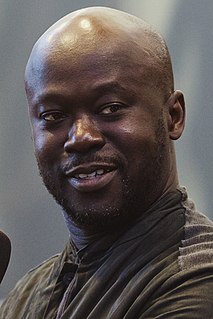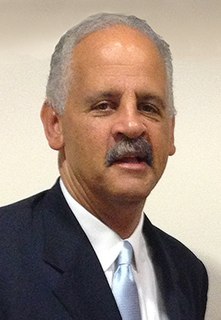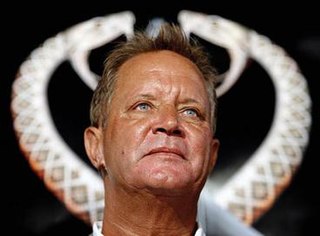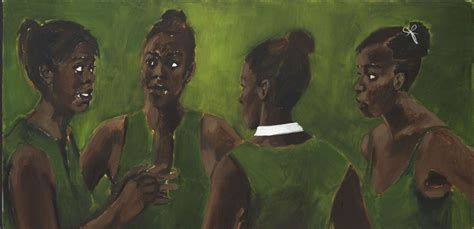A Quote by Kehinde Wiley
When I went to the Studio Museum in Harlem, there was a type of freedom that existed where I didn't have to think about professors, where I didn't have to think about much of anything other than my own practice.
Related Quotes
When I decided to go to art school, it wasn't necessarily something I thought I needed. No one talked about graduate school when I was an undergrad. I went on to a residency at the Studio Museum in Harlem, and that transition from Yale to the Studio Museum, that was the real beginning of my professional career.
I began working within the streets of Harlem, where, after graduating from Yale [University, New Haven, CT], I became the artist in residence at the Studio Museum in Harlem [New York, NY]. I wanted to know what that was about. I would actually pull people from off of the streets and ask them to come to my studio.
The museum in D.C. is really a narrative museum - the nature of a people and how you represent that story. Whereas the Studio Museum is really a contemporary art museum that happens to be about the diaspora and a particular body of contemporary artists ignored by the mainstream. The Studio Museum has championed that and brought into the mainstream. So the museums are like brothers, but different.
I realized that if I went snowboarding, you can't think of anything else when you're snowboarding. You can't hesitate or think about anything other than not falling off and breaking your neck. If you want a holiday where you're not gonna think about work and you're not gonna think about anything, snowboarding is the best way to do it. Or skiing, I guess. I don't ski, so I don't know.
Freedom is about a way of thinking. Freedom is about understanding that you can do anything that you want and freedom is about being able to take information and education and make it relevant to your own growth every single day. Freedom is not staying in the box. Freedom is not doing what other people want you to do.
I think that once you're able to sort of get in line with who and how you relate to the world, you'll become closer to this index that I'm referring to. Because what you want is this card that relates to that book. What you want is this human that relates to this world, rather than having this art school society scattering that point of view somewhere in between. It becomes diffused. And that level of clarity, I think, was gained at the Studio Museum in Harlem.
I had no idea about where I was going. I had no sense of art as anything other than a problem to be fixed, you know, an itch to be scratched. I was in that studio trying my best to feel content with myself. I had, like, a stipend. I had a place to sleep. I had a studio to work in. I had nothing else to think about, you know. And that's - that was a huge luxury in New York City.
When people ask about the aspect of race in the work, they are looking for very simple or easy answers. Part of it is when you think other people are so different than yourself, you imagine that their thoughts aren't the same. When I think about thought, I think about how much there is that is common.
People don't just get upset. They contribute to their upsetness. They always have the power to think, and to think about their thinking, and to think about thinking about their thinking, which the goddamn dolphin, as far as we know, can't do. Therefore they have much greater ability to change themselves than any other animal has.
You want to give the person as much freedom as you can within the boundaries of being a responsible producer with a contract to a studio. It's about giving as much freedom as you can, and the more the filmmaker proves he or she is on the track that you feel good about, then you just kind of watch dailies.



































